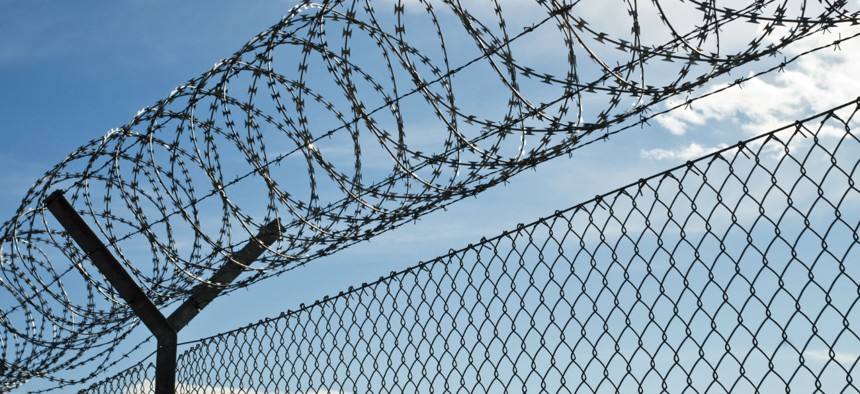
By angelo gilardelli / Shutterstock.com
Lack of Staff and Resources Continue to Strain the Federal Bureau of Prisons
Epstein’s death this summer while in federal custody highlighted these long-term issues.
The Federal Bureau of Prisons is severely lacking in staff and resources, the director testified before a Senate panel on Tuesday.
Kathleen Hawk Sawyer, who was bureau director from 1992-2003, came out of retirement to lead the agency again after acting director Hugh Hurwitz was reassigned in the aftermath of financier and alleged sex trafficker Jeffrey Epstein’s death in August while in federal custody. As the bureau, which oversees 122 federal prisons and more than 170,000 inmates nationwide, is working to implement the First Step Act’s prison reforms and deal with the circumstances that led to Epstein’s death, it is facing severe resource issues, according to Hawk Sawyer.
“We have put such huge strains on the Bureau of Prisons trying to accomplish its mission,” Hawk Sawyer said before the Senate Judiciary Committee. “With the dramatic growth we’ve had, the budget cuts, staffing shortages, it’s just been incredible to me that the bureau has been able to function during the last 16 years that I’ve been gone.” The vast majority of staff are good, hardworking employees, “but they are tired because they are stretched,” she added.
Hawk Sawyer attributed the resource problem to the rapid increase in the prison population in the last 30 years, employees retiring at a faster rate than they are hired, uncertain budgets, the recent government shutdown and the hiring freeze early in the Trump administration. “We have never had adequate resources to provide all the programs for all the inmates,” Hawk Sawyer said. “I’m hoping that will change now since you all support the First Step Act.”
According to the bureau’s website it currently has 36,348 staff members. The New York Times reported:
Between December 2016 and September 2018 – the date of the most recent data available from the federal Office of Personnel Management – the number of correctional officers fell more than 11%, from 19,082 to 16,898. That decline reversed a longtime trend. Before President Donald Trump took office, the number of federal correctional officers had continuously increased: there were 12.5% more officers at the end of 2016 compared to the beginning of 2012.
Hawk Sawyer said the bureau has “made great progress” to fill the over 3,300 vacancies nationwide, but it is going to take a while. In order to hire more staff, the bureau is working with the Office of Personnel Management to get direct hiring authority, hiring retirees on a temporary basis because they are already trained and using the professional services company Accenture to recruit young people online.
Sawyer said the only thing that impedes the bureau from providing adequate care and services for inmates is resources. She expects the agency will receive $75 million in this year’s appropriations for the First Step Act, which the law requires for the first five years, although she hoped for more. Last year the money to fund the program had to come out of the agency’s own budget since it didn’t get any extra from Congress, according to Hawk Sawyer.
In the meantime, the bureau has been relying on augmentation to temporarily fill correctional officer positions with other staff. Although Sawyer said this is a good process and all staff are trained for this role, she admitted the agency has to use augmentation more than is optimal and often employees are taken away from their designated work.
In addition to hiring, Hawk Sawyer said the bureau is working to replace the surveillance cameras in all prisons, ensure that staff are thoroughly trained and have managers repeatedly tell staff what their responsibilities are. These are all issues that came to light in the wake of the Epstein scandal.
As the hearing was going on the Justice Department indicted the two federal correctional officers on duty the night of Epstein’s death with falsifying records to say they checked on him.
Hawk Sawyer agreed with Sen. Ted Cruz, R-Texas, that the Epstein situation was a “black eye” on the entire agency. Since the FBI and the Justice Department Inspector General are looking into the Epstein case she said she could not speak about any specifics.
“We have some bad staff,” Hawk Sawyer said. “We want rid of those bad staff who don’t do their job. We want them gone one way or another either by prosecution or by termination. But the good staff are doing extraordinary work out there every day managing the 177,000 inmates. You never hear anything about those people.”







